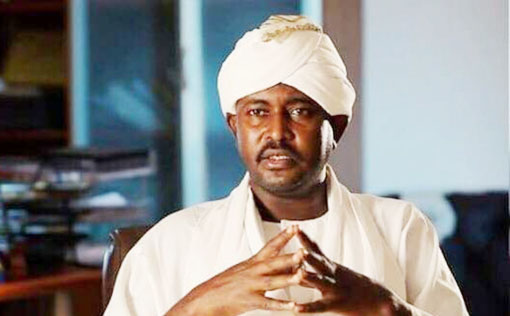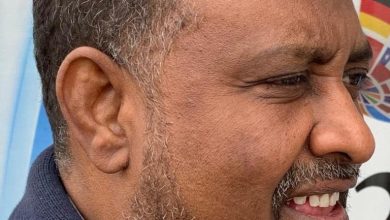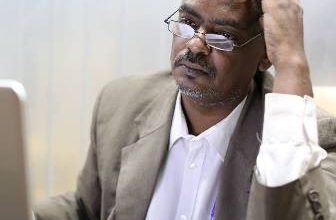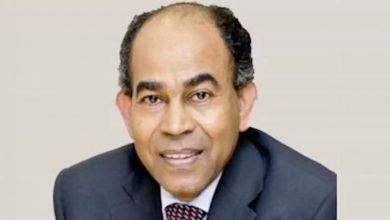War in Khartoum, does it spread to Chad…?

Sadik Al-Rizeiqi
There is great concern in the African Sahel region, especially in Chad, about the effects and repercussions of the ongoing war in Sudan, its regional extensions, and the interplay of its components in sub-Saharan African countries. Chad tops the list of countries that could be affected by and drawn into the war, as its consequences have already reached the edge of the Chadian state. Chad, like Sudan, suffers from acute ethnic and tribal alignments, and two key events directly point to the possibility of the worsening situation in Chad and its rapid involvement in the storm of war blowing from the east.
The first event is the visit of the Chadian transitional president, Mohamed Idriss Déby, to the United Arab Emirates on 13 June 2023. This visit is directly related to the situation in Sudan, where Abu Dhabi has been working for some time to soften Mohamed Déby’s stance and influence his support for Sudanese rebels. The UAE seeks to reassure the Chadian transitional president, who has expressed constant concerns about the growing power of the Rapid Support Forces (RSF), a position inherited from his late father, Idriss Déby. The reason behind this is well-known and does not require explanation, as the RSF is a military organisation that includes overlapping tribes and ethnic groups in Sudan and Chad with strong ties. Thousands of Chadian opposition military factions have also joined the ranks of the RSF, in addition to the existence of an undeclared alliance between the FACT (Front for Change and Concord in Chad) and the Sudanese opposition movements fighting in northern Chad, which led to the killing of the former Chadian president, Idriss Déby, in April 2021.
The second event occurred after the Chadian transitional president, Mohamed Déby, returned from the UAE. He issued sudden decisions to retire dozens of senior army generals (111 generals), including prominent leaders holding important portfolios representing the pillars of power and their alliances. He also dismissed 66 security and police leaders. These moves hinted at the latent conflict within Chad over control by the old guard, consisting of associates of the late President Idriss Déby and his extended interests, which reach into Sudan and their relations with shared tribal components that were previously rebel movements in Sudan. These movements now share power in Sudan with the army under the Juba Peace Agreement.
In this context, Chadian sources revealed details of the visit of the Chadian transitional president to Abu Dhabi, preceded by a visit by a UAE delegation, including Taha Osman, the former Sudanese President Omar al-Bashir’s office director, at the end of April. During this visit, an invitation was extended to President Mohamed Déby to visit the UAE. The Chadian President’s office director, Idriss Youssef Boui, and Abu Bakr Adam Mannani, an advisor in the Chadian presidency, played prominent roles in the arrangements for the visit. Both men have commercial ties and various interests with Mohamed Hamdan Dagalo (Hemeti) and have maintained communication with him.
Upon President Déby’s arrival in Abu Dhabi and as soon as the delegation entered the hotel, Taha Osman met with Youssef Boui and Mannani. They discussed the primary purpose of the visit, particularly regarding Sudan and the necessity of understanding the UAE leadership’s stance on the Chadian situation. Additionally, they discussed financial support for Chadian development projects and the UAE’s commitment to allocate financial support for Chadian development projects (1.5 billion dollars) along with support for the rehabilitation of the Chadian army and the provision of necessary equipment and supplies.
The sources reveal that the United Arab Emirates (UAE) has requested direct political, security, and military support from Chad in exchange for financial aid. The UAE seeks Chad’s support for the RSF rebels in Sudan. In return, the UAE is willing to turn a blind eye to any Chadian mercenaries or others who want to cross into Khartoum. Furthermore, the UAE has requested that Chad allows the transfer of military equipment, arms, and supplies to the Sudanese rebel forces through Am Jartas border airport, which is close to Sudanese territory.
Diplomatic reports in Chad suggest that this support has already started arriving at Am Jartas airport through chartered cargo planes from several companies, including one owned by Abu Bakr Mannani. Additionally, there is information indicating that the United States has requested a permanent presence at Am Jartas airport to monitor expected terrorist group activities believed to be present in the region, encouraged by the chaos in Sudan.
The sources also assert that the visit of the Chadian President’s son to the UAE is the direct reason behind the dismissal of Chadian generals. The reasons for this move include:
Several Chadian army generals, especially those belonging to the Bidayat and Zaghawa tribes, have held meetings where they outlined Chadian national security demands. These demands include standing against the rebellion of the RSF in Sudan and avoiding any support for them since they pose a threat to their power in Chad, especially as the core fighters in this rebellion come from Chadian opposition groups of Arab origin.
Any support or backing for the RSF in Sudan at this moment would mean abandoning the Sudanese movements participating in the government, who belong to the Zaghawa tribes (such as the Sudan Liberation Movement led by Minni Arko Minawi, the current governor of Darfur, and the Justice and Equality Movement led by Gibril Ibrahim, the Sudanese Finance Minister). Both of these movements have strong ties to N’Djamena and have contributed to the stability of the Chadian situation over the past two decades.
Any shift in the current Chadian stance regarding events in Sudan could lead to changes in Chadian internal alliances, creating new alliances that may end the dominance of the group that has ruled Chad since 1990.
These points reflect what is happening within the Chadian army and power centres within the ruling regime. Additionally, there has been an undeclared conflict since the killing of President Idriss Déby between a rising new generation of leaders and the old guard. France is closely monitoring these developments and is prepared to support the side that can ultimately resolve matters in its favour.
The dismissal of the generals does not necessarily mean that unresolved issues have been settled or that loyalty within the army has shifted in favour of Mohamed Déby. He is attempting to secure the support of his clan, his father’s associates, and many figures within the regime through the changes he has made. There is an intense backlash within the army and power centres, which will influence the course of events in N’Djamena. Among the Zaghawa, they have lost many of the dismissed generals, around 50% of whom come from this tribe. The Arab generals have also been affected, with a decrease of 11%, while the Gura’an make up around 7%, and other tribes like the Tama and Waddai constitute around 10%. Promotions have varied, with the officers who have taken the positions of the dismissed generals distributed as follows: Zaghawa and Bidayat 30%, Gura’an approximately 46%, and Arabs 2%. The Gura’an have increased in representation, as they are relatives of President Mohamed Déby’s mother, while the Zaghawa and Bidayat have decreased. This indicates that the composition of the Chadian army may undergo significant changes, affecting army loyalty and the country’s future.
These changes, coupled with the political situation that is on a very fragile edge, set the stage for violent conflicts due to the overlap of events in both Sudan and Chad. There are strong indications of movements among various tribal groups, and consultations are taking place to formalise future alliances for power in N’Djamena. The transition of the war to Chad is just a matter of time, especially since the fighters from Chadian opposition groups who are now part of the RSF possess the tools of war, weapons, and armoured vehicles. They will flee with the looted money and gold from Khartoum to wage their anticipated war in their own country, Chad, supported by their tribes spread across sub-Saharan African countries. Thus, the ramifications of the Khartoum war have reached the most extreme of what was expected and planned for.




Am very glad that I always receive very refreshing news internally and abroad.
Thanks so much for that.